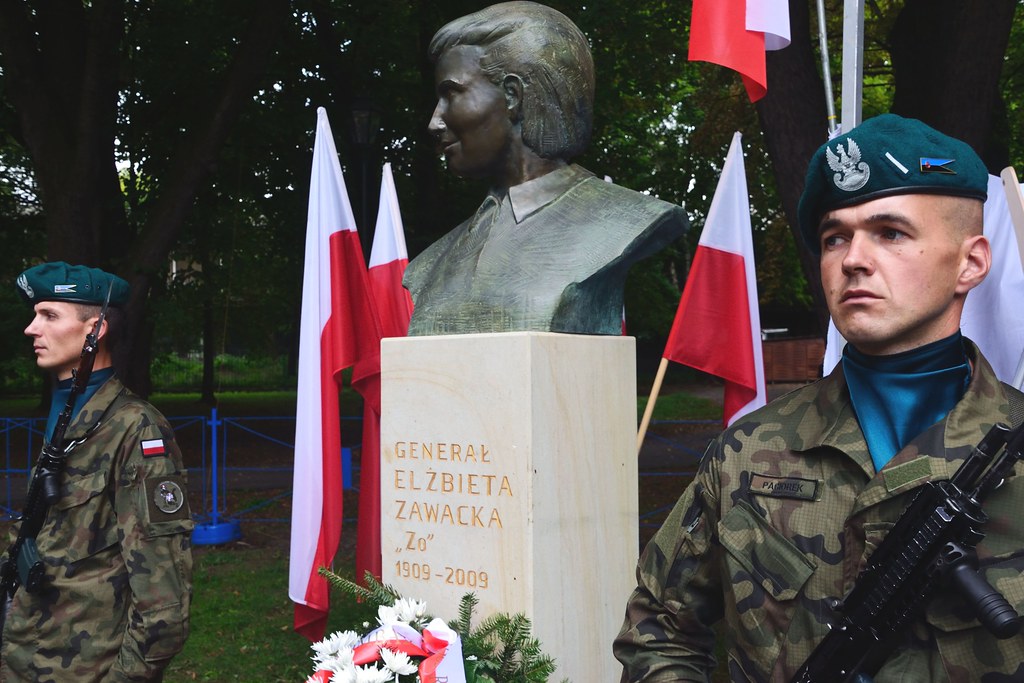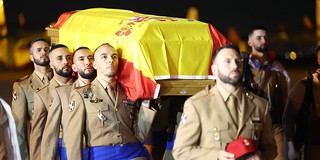Elżbieta Zawacka: the heroic story of a Polish woman who became a General
Poland is a country that has a long tradition of women in military life, even in very risky missions that many men would not have taken on.
She volunteered to contribute to the defense of her country
One of the best examples of Poles who became warriors is Elżbieta Zawacka. She was a blonde, blue-eyed Catholic woman known for her earnestness, her ardent patriotism. She was born in 1909 in Toruń, a Polish town then under Prussian rule. While studying at the University of Poznan she joined the Organization for the Preparation of Women for the Defense of the Country (PWK), an organization founded in 1928 to military train women for auxiliary services in war case. Once she started working as a teacher, Elżbieta volunteered to help the PWK as an instructor, rising to the rank of commander.

She defended Poland in the 1939 invasion and joined the Polish resistance
In September 1939, when Germany and the USSR invaded Poland, Elżbieta contributed to the defense as a member of the Women's Auxiliary Military Battalion in Lviv, participating in the defense of that city. Once the country was occupied by the Germans and the Soviets, Elżbieta joined the Polish resistance as early as October 1939, enlisting in one of its first organizations: the Służba Zwycięstwu Polski (SZP, Service for the Victory of Poland), adopting the pseudonym Zelma and developing her activity in Upper Silesia. In 1940 it was assigned to Warsaw to the Headquarters of the Armia Krajowa (AK, Home Army) , beginning to collaborate with Zagroda, its foreign department.

The Germans never managed to capture her
Elżbieta then began a tireless activity as a courier that led her to cross the border hundreds of times, traveling to Germany, the United Kingdom, France, Andorra and Spain, using false names such as Zofia Zajkowska or Elizabeth Watson. Despite the enormous risk that these trips posed to her, the Germans never managed to capture her. In 1943 she was sent to London, stopping in Gibraltar, as a courier for the Commander-in-Chief of the AK, among other purposes to improve the status of women in the Polish Army.
Once in Great Britain, Elżbieta took a paratrooper course, returning to her country in September 1943 by parachute. For this reason, she is considered by many to be the only woman who was part of the legendary Cichociemni, the Polish soldiers trained to carry out commando tasks, although she did not consider herself one of them, since she did not finish the specific commando course. To tell the truth, her work as her messenger was more risky than that carried out by most of the Cichociemni.
In 1951 the communists arrested her and tortured her
Back in the capital of Poland, and with the pseudonym Zo, she participated in the Warsaw Uprising of August 1944. After the defeat of the insurgents, she managed to reach Krakow, helping to rebuild the AK structures in that city. Like other members of the Armia Krajowa, at the end of the war she joined a new organization, Wolność i Niezawisłość (WiN, Freedom and Independence), whose purpose was to fight against the new occupiers of Poland: the Soviets. In 1946 she joined civilian life, working in different posts, mainly as a teacher. Although she had abandoned clandestine activity, in 1951 she was arrested by the communist dictatorship and tortured. She was sentenced to 10 years in prison , but she was released in 1955.

Recognition of her heroic struggle after the fall of communism
After her release, she continued to work as a teacher and finished her doctorate at the Krakow Pedagogical University. In 1976 she traveled to London for academic reasons, being harassed by the communist dictatorship upon her return to Poland, for which reason her health worsened. She suffered two heart attacks and in 1978 she was forced to retire. But her commitment to Poland did not end there. She joined the Catholic union Solidarnośc in Toruń, and she also founded an association of AK veterans in that city.
After the fall of communism, in 1990 the Polish government recognized her service to Poland by awarding her the Officer's Cross of the Order of Polonia Restituta. In 1993 she was made an honorary citizen of Toruń. In addition, she she was twice awarded the Virtuti Militari, Poland's highest military decoration, and was awarded the Cross of Valor five times. In 1995 President Lech Walesa awarded her the Order of the White Eagle, the highest civil-military distinction in the country.

She was the second Polish woman to reach the rank of General
Finally, in 2006, at the request of other Warsaw Uprising veterans, the President of the Republic of Poland, Lech Kaczyński, promoted Elżbieta to the rank of Brigadier General. She was the second Polish woman to reach the generalate. Elżbieta passed away on January 10, 2009, two months before her 100th birthday.
Cześć jej pamięci! Honor to her memory!

|
Don't miss the news and content that interest you. Receive the free daily newsletter in your email: |
- Most read
- The brutal 'touch and go' of a Lufthansa Boeing 747 at Los Angeles Airport
- An American airman used a Flag of Spain to direct a B-1B Lancer bomber
- A Spanish pilot shows one of the C-295M of the 353 Special Operations Squadron
- The massive takeoff of more than half of the United States B-2 Spirit stealth bombers
- Eurofighter vs F-35: the opinions of professional pilots on these advanced fighters
- The firearms used by the Pontifical Swiss Guard, the smallest army in the world
- E-4B Nightwatch: this is the inside of the 'Doomsday Plane' of the US Air Force

 ES
ES







Opina sobre esta entrada: